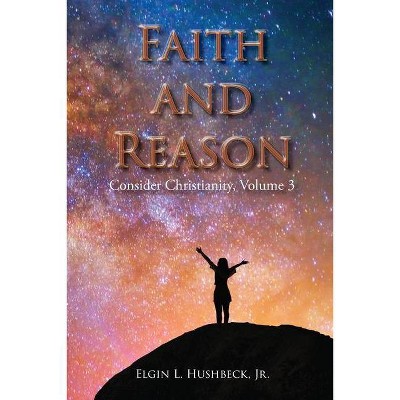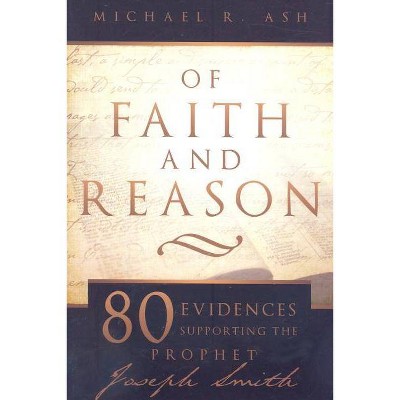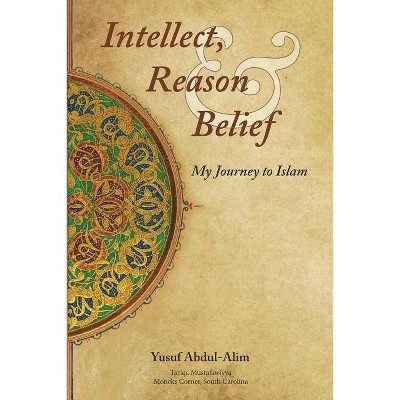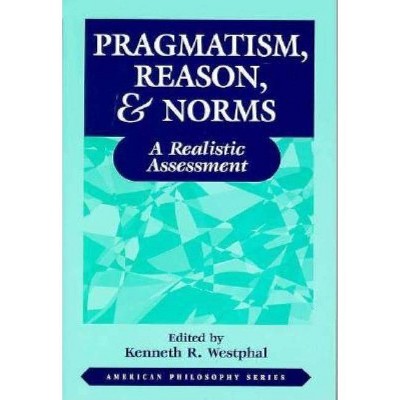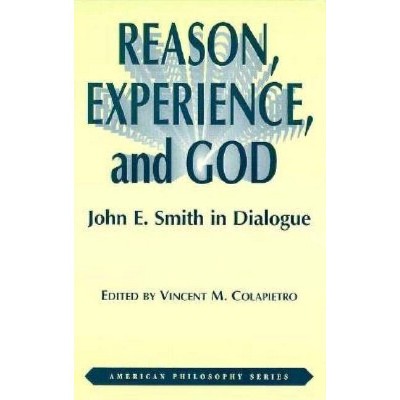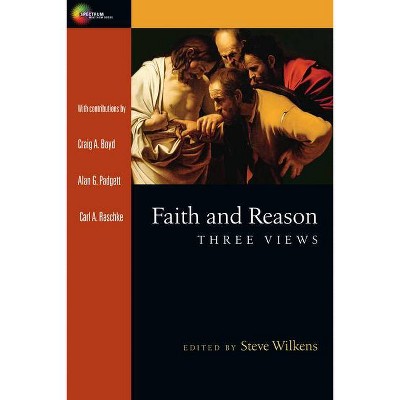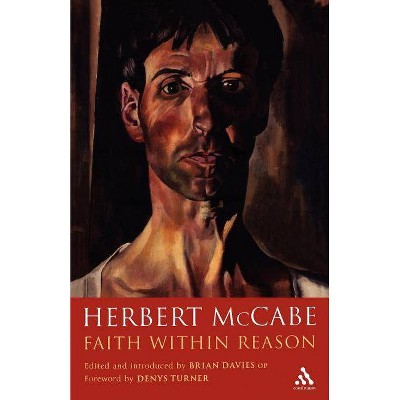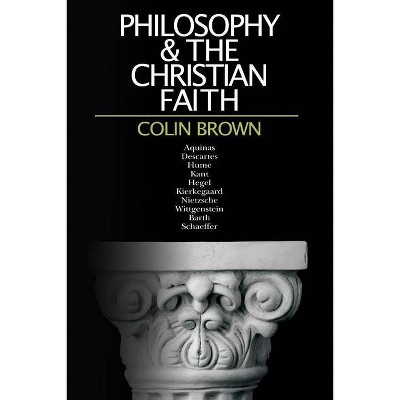The Impact of Reason on Faith, Ethics and Belief - (Vernon Philosophy) by Geran F Dodson (Paperback)
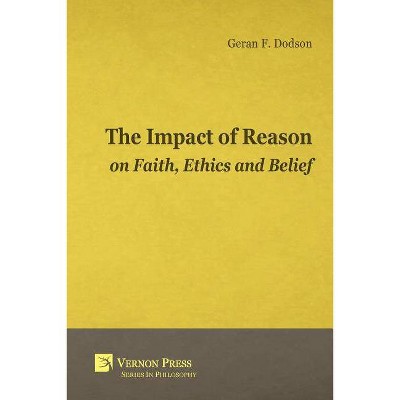
Similar Products
Products of same category from the store
AllProduct info
<p/><br></br><p><b> Book Synopsis </b></p></br></br><p>The purpose of the book is to examine the theological claims of ethics, faith and belief from a philosophical perspective. The Abrahamic and Mosaic covenants of the Old Testament, Jesus of the synoptic gospels, and Paul's writings serve as the frame of reference in examining a biblical expression of reason and structured logic. The message of Jesus centered on the Kingdom of God, defined the meaning of faith and belief, established a new ethic, and framed the message in logic forms. The life and death of Jesus brought the realization of God's final covenant as prophesied by the Old Testament. However, Paul appropriated and developed the Jesus of history into the mythological eschatological Christ figure. The clash of philosophy and theology is evident with theological presuppositions that are based on spiritual insight and divine revelation. Logic in scripture employs propositions based primarily on revealed proof that is within the context of that which cannot be proven absolutely. Uncovering the identity of YHWH in the manuscripts and religious practices of Canaanite culture clearly associated YHWH with the polytheism of the Ugarit texts. YHWH was one of the seventy sons of the Canaanite Most High God El and took on a unique identity that was rooted in El and the polytheistic nature of the pantheon of gods. Theological truths stand within the context of faith and reason stands apart from faith and infers only that which can be proven based on evidence. That which is knowable by faith cannot be known by reason since reason cannot validate that which is not proven to exist.</p><p/><br></br><p><b> Review Quotes </b></p></br></br><br>"The relationship of philosophy and theology is a perennial conundrum. Professor Dodson ventures boldly into the dialogue by examining it from a number of different though inter-related viewpoints: Biblical covenants, faith and belief, philosophical and theological ethics, the particular logic of theology, and a number of views of the identity of God. In addition to religious and philosophical ideas, he effectively brings psychology and sociology into the conversation. This sounds complex, and it is. But Dodson also manages to make this discussion accessible to laypersons interested in these issues, especially those who want to think more seriously and reflectively about religious faith and are dissatisfied with Biblical literalism and uncritical theological pronouncements. The book gives such readers tools to assist in that struggle by synthesizing many important perspectives and exploring practical illustrations." Joseph T. Reiff, Floyd Bunyan Shelton Professor of Religion Emory & Henry College "The author has an incredible command of language and uses his understanding of logic and theology to guide the reader on a journey through the biblical covenants with God. There is a critical description of the legal, spiritual, and physical aspects of a covenant that helps to contextualize the analysis of God's promises and the interpretations of God's relationships with notable figures such as Abraham, Moses and Jesus. "A clear methodological lens is employed to examine scripture. "Hermeneutical method in fact is a great choice for this exploration because it traditionally has been associated with the analysis and interpretation of spiritual texts. The author employs the use of logic as a way to understand and interpret the relationship between God and humanity. Each covenant represented a promise, yet there were inconsistencies within the promises. The inconsistencies represent the places where logic ends and religious faith ensues. It was particularly interesting to review the differences between individual covenants and generational covenants. This helped to explain the legacy of Israel and the assumed divine rights that stem from their generational covenant with God. In the end, the reader is cast into an open sea of possibilities to dissect the nature of belief and the human desire to have a connection with God. "The text would appeal to an intellectual audience, scholarly as well as religious community; along with an average person who enjoys philosophical debate. The analysis is intriguing and could spark great philosophical debate that could serve to influence religious research and enhance biblical understanding for theologians." Stephanie J. Hawkins, PhD Director of Teaching & Learning MAT "[...]The work is helpful for those who want to begin their own reconciliation of reason and Christianity, or religions in general, by challenging conventions people take for granted with either." Charles Rozier Philosophy Instructor University of North Georgia "Dodson's approach to the relationship between philosophy and theology emphasizes ethics and reason. He challenges the reader to think objectively about traditional theological claims and to apply ethical reasoning in examining such claims. The clash between philosophy and theology is most evident when theological assumptions of divine insight are assessed from this philosophical perspective. With wide-ranging research and sound exegetical methodology, he begins with the covenants of the Old Testament, weaves his way through the gospels and writings of Paul, and argues for the establishment of the Jesus Covenant as the final covenant in the relationship between God and humanity. [..] "This is a must read for anyone seeking a deeper understanding of a philosophical approach to understanding theology." Mary Rose Kasraie, PhD Cobb County Campus Strayer University<br>
Price History
Price Archive shows prices from various stores, lets you see history and find the cheapest. There is no actual sale on the website. For all support, inquiry and suggestion messagescommunication@pricearchive.us
